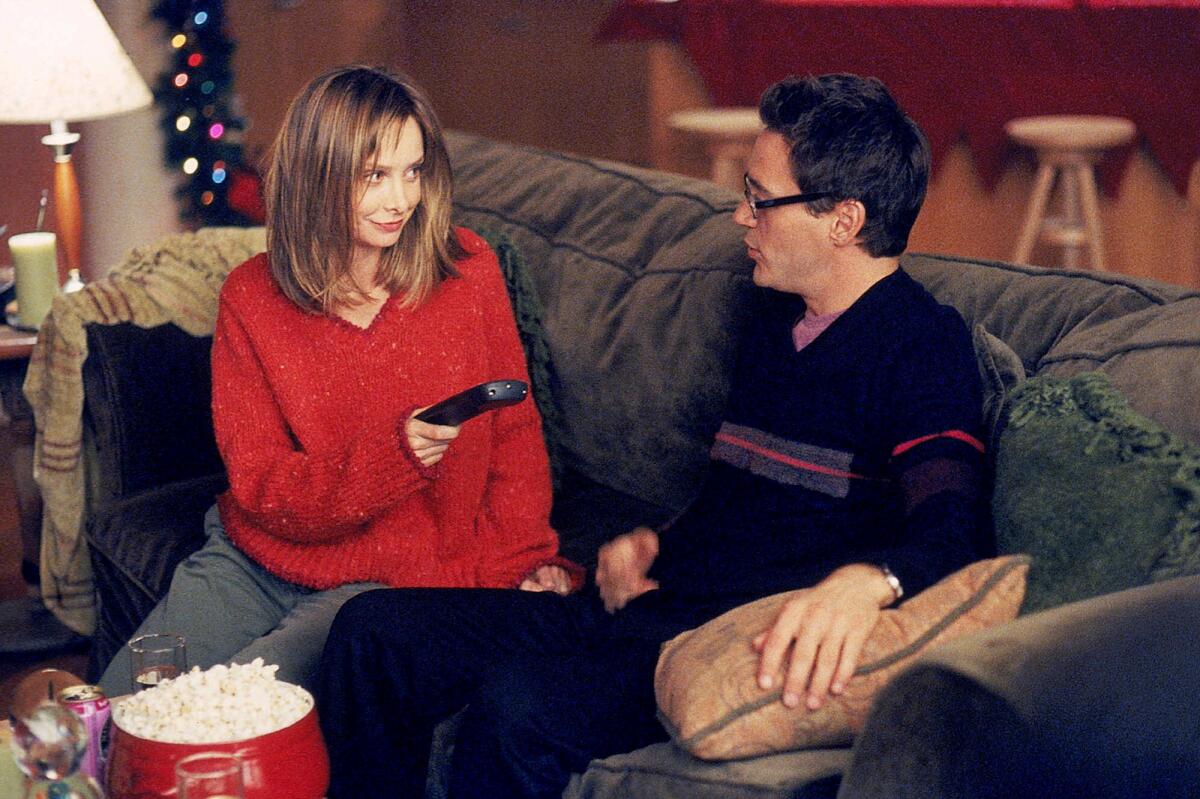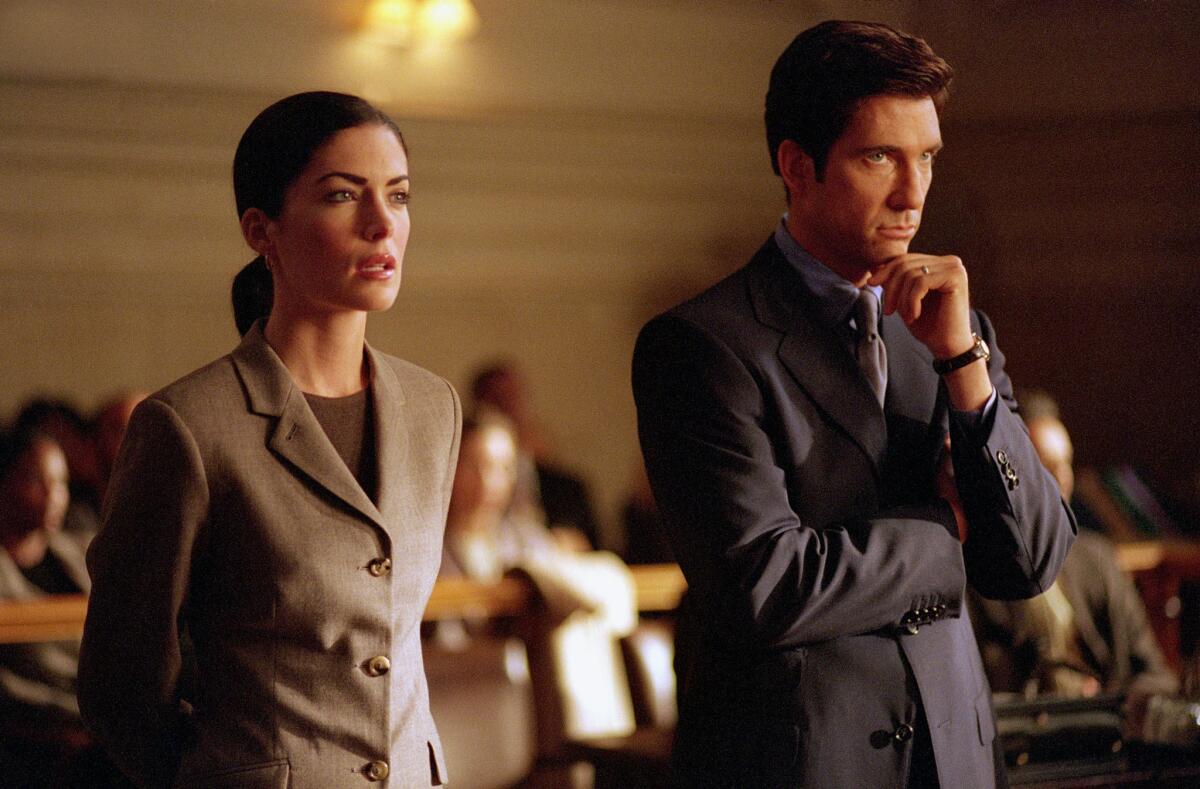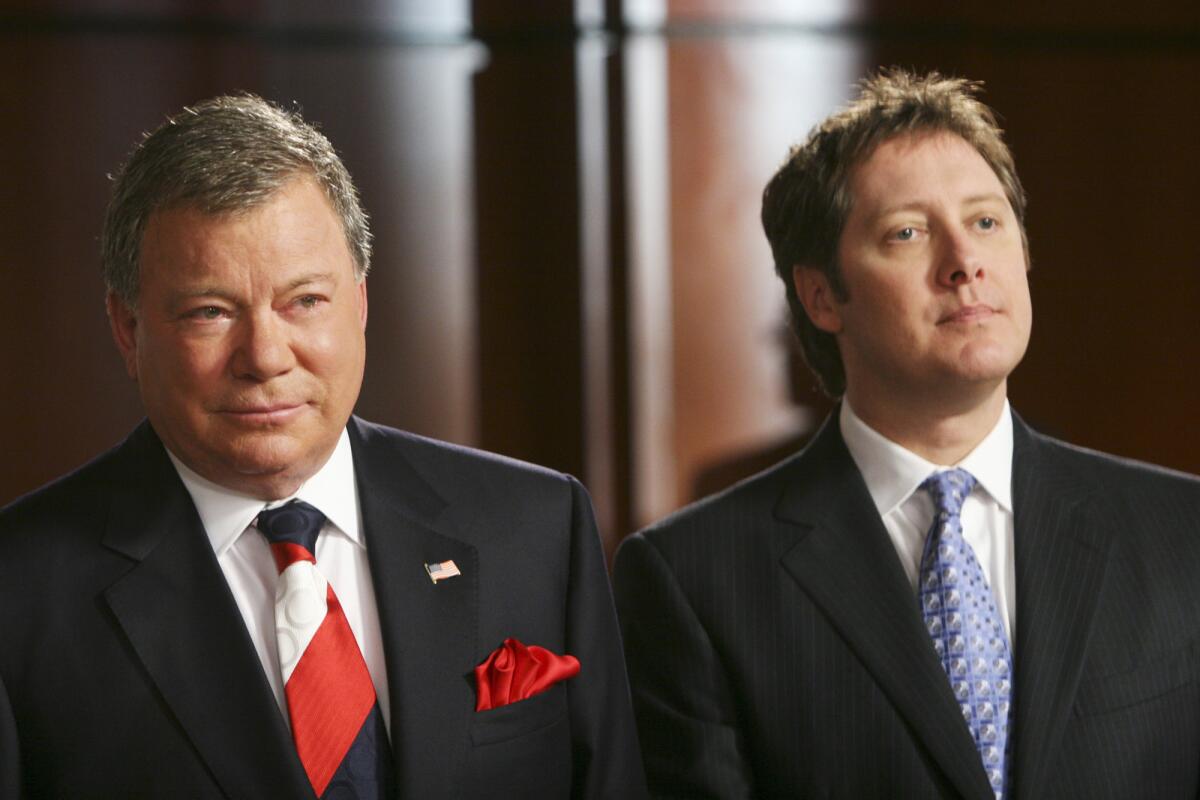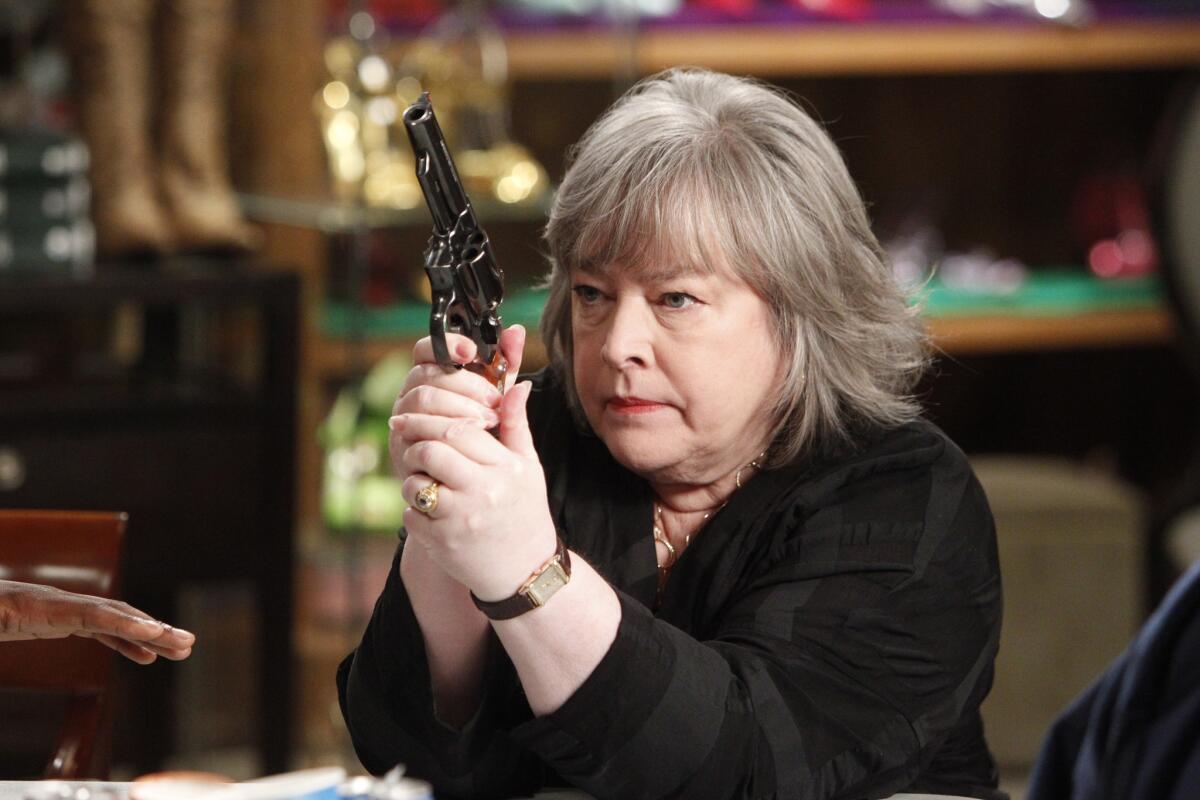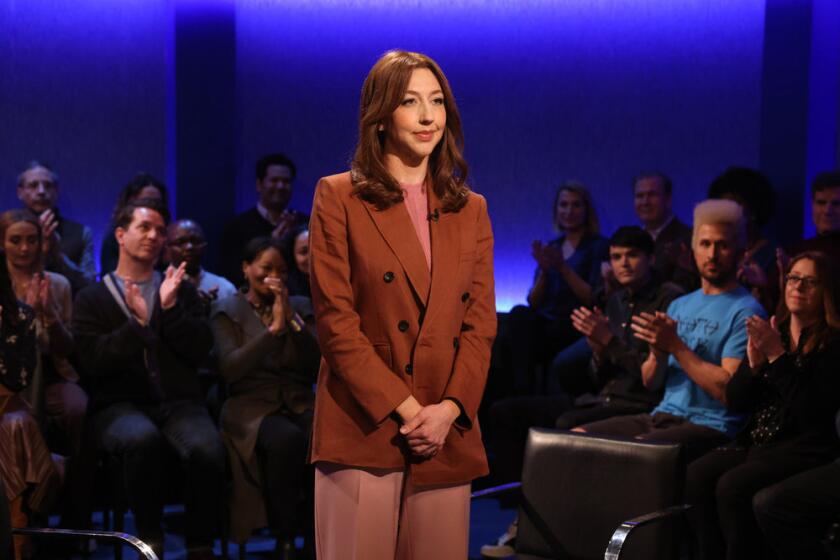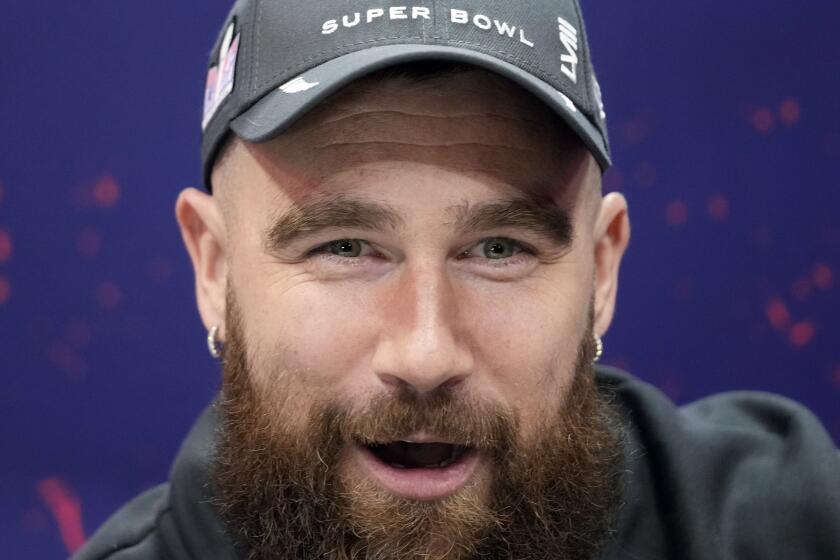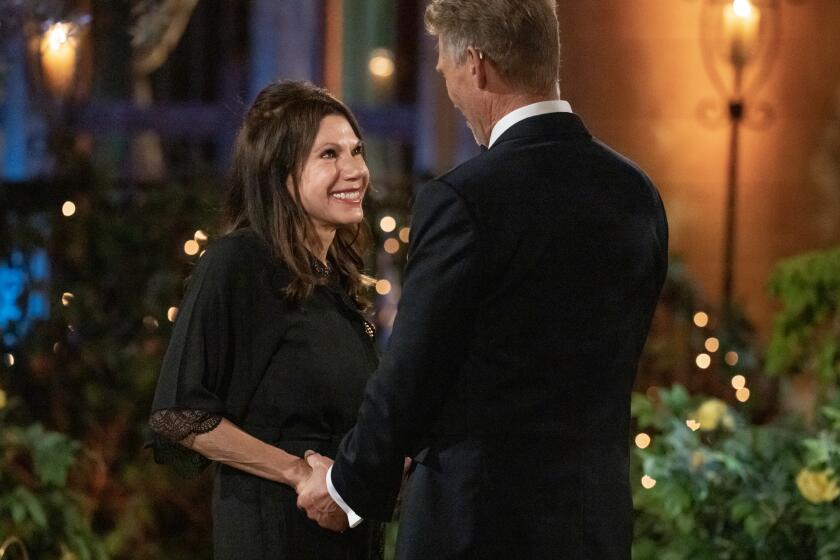After swearing them off, David E. Kelley returns to law shows with ‘Goliath’ — but not for a network
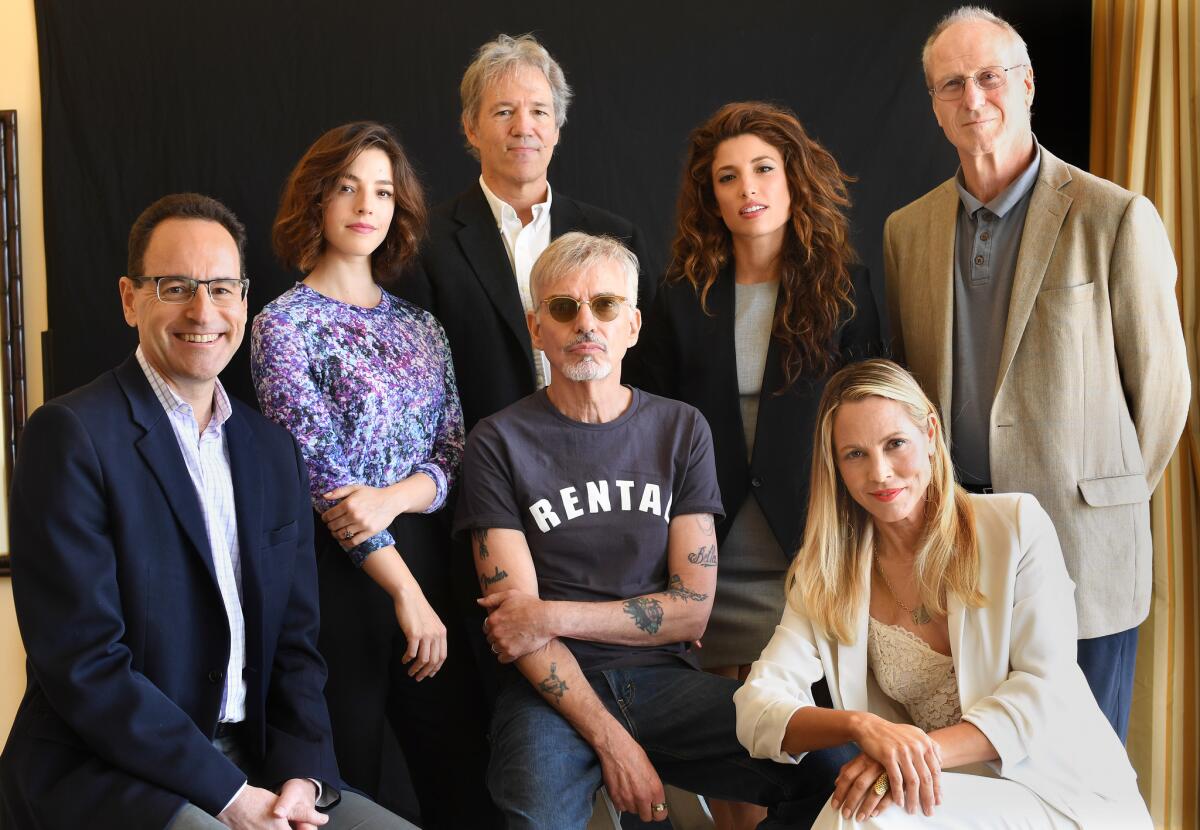
David E. Kelley swore he was done. He even made the promise on paper to his grown children.
No more law shows.
The former Boston lawyer-turned-prolific writer and producer has built a reputation as TV’s legal drama maestro thanks to such popular series as “L.A. Law,” “The Practice,” “Ally McBeal” and “Boston Legal.” Each helped solidify the time-tested dependability of courtroom dramas on the small screen. After his last legal show, “Harry’s Law” starring Kathy Bates, was canceled in 2012 after two seasons due to its older-than-desired audience, Kelley thought maybe it was time to put the gavel down.
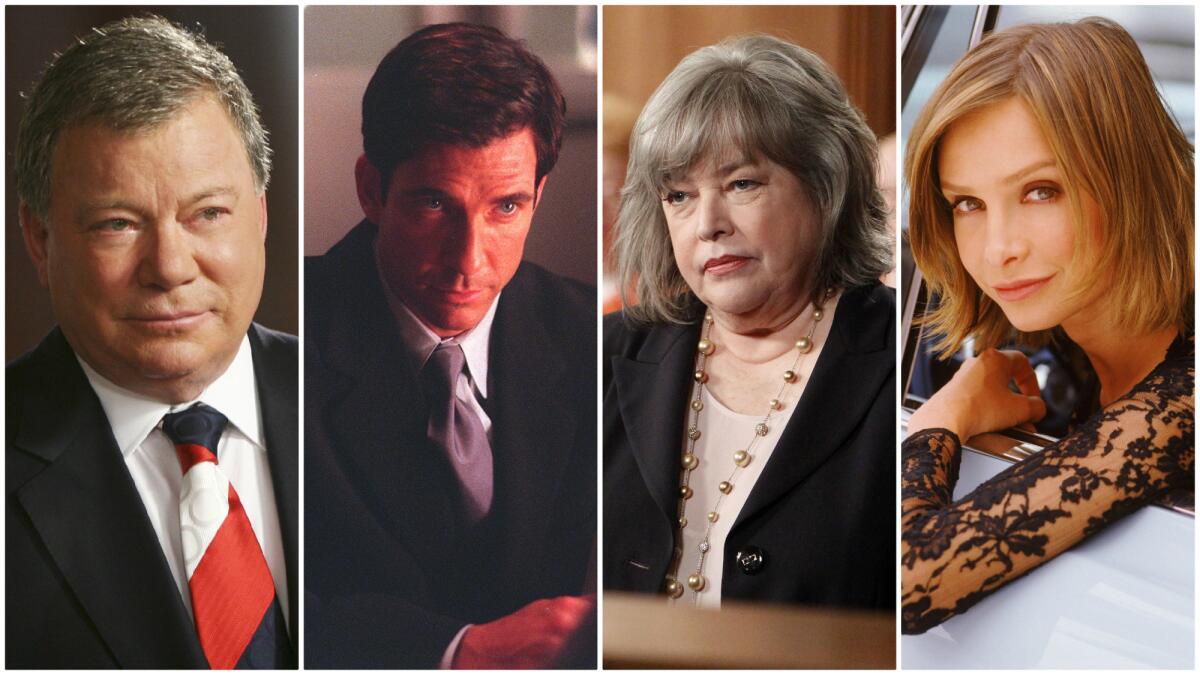
READ MORE: David E. Kelley looks back on “Ally McBeal” | “The Practice” | “Boston Legal” | “Harry’s Law”
“I know there aren’t long lines on the street corners with people saying, “Give us another law franchise, will you?’” Kelley said on a recent morning. “But I started thinking about what kind of stories I want to tell, what kind of characters I wanted to mine — they invariably led back to law.”
And his kids were overruled.
The series that pulled him out of legal drama retirement will be unveiled on Friday with the release of “Goliath” on Amazon — yes, Amazon, a first for Kelley. “It’s a whole new and unknown journey for me,” said Kelley, who has been a mainstay on broadcast TV with series that have run on CBS, NBC, ABC and Fox.
The legal thriller stars Billy Bob Thornton as a burned-out lawyer, Billy McBride, trying to take down a megalithic firm that he helped build. The series was co-created by Jonathan Shapiro, a former federal prosecutor and trial lawyer with whom Kelley also worked on “The Practice” and “Boston Legal.”
“Goliath,” which also stars William Hurt and Maria Bello, sets out to explore the disparity of the haves and the have-nots — and not just on an individual level, but also on a business level, delving into the ramifications of big corporations gobbling up smaller ones. Part of the idea was borne out of Shapiro’s time working at a similar behemoth-like law firm in recent years.
(Warning: Video contains graphic language.)
“Nobody goes to trial anymore because they can’t afford it,” Shapiro said. “Most people can’t afford a lawyer. The whole concept of David vs. Goliath just in present day is totally different,” Shapiro said. “It started to feel like David wasn’t going to win anymore.”
Morgan Wandell, head of drama series at Amazon Studios, said part of the allure was that it wasn’t a traditional law show. It’s “much more of a thriller and a character piece,” he said. “The novelistic approach David and Jonathan are taking really appealed to us. It felt like it had a lot of cinematic possibilities as well. It feels like a fantastic eight-hour Billy Bob Thornton movie.”
Wearing a suit with slightly disheveled, surfer-like hair in a West Hollywood hotel room, Kelley, 60, is easygoing but becomes animated when talking about law and his unending fascination with what it uncovers about human pathos.
“The law is a very imperfect world,” he said. “It’s the best piece of machinery we have to legislate societal norms and values and a code of ethics. But it’s extremely imperfect when you try to apply it systematically. It has all kinds of breakdowns. That’s opportunity for storytellers to examine those fissures, not just the legal system, but also in the characters that function in it.”
It’s why he’s not surprised by television’s revived fascination with true-crime narratives. But he does have competing emotions about it. There is his own enchantment with them — he watches “Dateline” frequently and was “riveted” by “Making a Murderer” — and his own concerns about measuring up with them as a dramatist.
“What I find so great about those series, aside from the actual plot, is they are just wonderful character studies, the people in it, the lawyers in it,” said Kelley. “Fiction really can’t compete with true life. I can’t compete with that. I wouldn’t even try. I think one of the reasons I fled the practice of law is, I think on some unconscious level, I didn’t want to be stuck with the facts. When you make it up, and you can freewheel as a storyteller, it’s a little more fun.”
Of course, it wasn’t the career he planned. Kelley graduated from Princeton University in 1979 with a degree in politics. He followed that up with a law degree from Boston University. While he was content practicing law, on a whim, he wrote a screenplay — “From the Hip,” set in the world of law — out of a desire to tell a story.
Before it was put into production, he got a call from Stephen Bochco, who had created “Hill Street Blues” and would go on to leave his own formidable mark on the television landscape. It was the mid-’80s and Bochco was developing “L.A. Law” and was seeking writers with a legal background.
“What he was able to render was a workplace in a courtroom, which most writers turn into a kind of formal environment that is kind of dull,” said Bochco in a telephone interview. “David turned the courtroom into a prosaic environment where people are funny, people are not paying attention, judges are impatient. He just absolutely created a world that most people who don’t interact with the law had never really seen before. It became a very human place. I was completely seduced by that.”
Kelley came out to meet with Bochco, and never went back to practicing law.
“I went into the world of law under the delusion that it combined all these great things — you get to compete and there’s winning and there’s losing and you get to perform,” said Kelley, whose interest in competition stems from his youth as an avid hockey player.
“Then the actual practice,” he continued, “was more about the nuts and bolts, research and the boring discovery trail and the realization that you don’t actually get the intellectual part of the equation. Cases usually settle on more pragmatic concerns. I did like being a lawyer. I didn’t wake up one day and hate it. I just stumbled into this other world. A make-believe world, it was just more fun.”
Some of those nuts and bolts of the profession and its process will get explored in “Goliath.” After years on broadcast television, where an hour-long drama actually unfolds in roughly 45 minutes because of commercial breaks, Kelley has more time to play on Amazon. For the first time, he is experimenting with focusing on a single case in the course of the show’s eight-episode season. In fact, the case “Goliath” explores is one Kelley and Shapiro had wanted to explore on “The Practice” but had trouble compressing into a single episode.
“On broadcast TV, there’s only so much unearthing you could do,” Kelley said. “You opened a case at two minutes past the hour and, then, 30 minutes later your people are literally in closing arguments. So the idea that we could take one trial and sort of be more myopic over eight episodes, that was something that I found appetizing.”
But will this be his last law-themed show?
He just chuckled.
'Ally McBeal': 'Sadly, some of the issues have not gone away'
I wanted to explore inter-office politics and the inter-relationships within that office. With that character at the helm, we were also able to look at the courage of somebody who's scared. She was fraught with various neuroses, weaknesses, fears, but ferocious in her determination to charge ahead and face them all. And she was living in a world where gender politics were not only in play, but they were stacked against her. The head of the firm, Richard Fish, was a card-carrying chauvinist, misogynist. When Ally was going to try and change and then combat these gender prejudices that were in place, it was going to be difficult for her to succeed. Mainly, she was just a person trying to figure out life. I think she woke up with trepidation every day, "how am I going to figure out this life thing, this law thing, this love thing," and yet she never wavered in setting sail into those headwinds.
Sadly, some of the issues have not gone away. I would have thought - we started that show in 1997 or something - I would have hoped that some of that would feel very archaic, that women don't hit these walls any more. You don't have to look far to see that some of those issues have never been more alive and well.
'The Practice': Tackling big issues with no right and wrong answers
It was called “The Practice” because we had just done “L.A. Law” and we were going to do a series that actually focused on the actual mechanics of what it takes to prosecute and defend cases. The exploration - those little bits and pieces sometimes themselves are accompanied with drama and challenges that had never been really explored on television. The conception of “The Practice” was really to examine the pieces of litigation.
Then we got put on Saturday nights, to start, which was the death knell. Our only chance at survival was that somebody better be dead by ten minutes past ten. Just to survive, we were taking a lot of high-profile cases, murder cases, because at 10:00 p.m. on a Saturday night, people are tired, they've been home, they turn on the television, "Show me something dead." Or "Show me something grand that will keep me up till 11." The story-telling became a little more arched than the original conception. It flourished with this diet of big criminal cases, so it became a criminal practice very quickly in the life of the show. That's a good example of sometimes, you start out wanting to making one show, then the characters and the film lead you in a different direction.
We had really good people. Camryn Manheim, obviously Dylan McDermott, Kelli Williams, Steve Harris. They had such great chemistry amongst each other as an ensemble. But we really were tackling, for the most part, big issues, for which there were no right and wrong answers. If we executed properly, the best of those episodes would make you think, but also by virtue of our characters inhabiting those stories, it would make you feel at the same time. What that show did not have was a lot of laughs.
'Boston Legal': 'Having fun' at a time when 'dissent was considered unpatriotic'
“Boston Legal" had both those big questions but we also had fun laughing at our characters and with our characters and with our audience too. We often broke the fourth wall in that show and that was first and foremost, obviously, a relational piece between Alan Shore and Denny Crane. We did get to tackle big subjects that resonated with us. That also was on during a time when, it was early after 9/11, we were going through a time in our country when dissent was considered unpatriotic, and debate was a bad word. We kind of reacted to that. One of the qualities of that show was to become a town crier, although James Spader's character, Alan Shore, was to become the town crier.
That was a lot of fun. I think those two men and the friendship that they had, Alan Shore and Denny Crane, that was my favorite part of the show, that friendship. The idea that these two men could find time, at the end of each day, even tough days, to sit down and just relate with each other in a world that was so fast, that people just weren't doing that as much. It seems today sometimes people are relating more to characters on TV than they are to the person sitting next to them.
'Harry's Law': 'Speaking as one of those old farts, I really liked that show'
The intent with “Harry’s Law” was really to explore the eroding sense of relevance of an older attorney-- a very, very successful patent attorney who'd made a good living, achieved a lot of intellectual highs, but felt that she had missed out. All of a sudden, she was approaching mid-50s, and it was dawning on her that life had passed her by. So starting a new chapter in her life - which is not easy for someone of that age. We were looking to explore, and we did, for two years, the insecurities and the frailties, but also the strengths of that character. Kathy Bates as Harriet Korn had a very distinct compass on the world and the law and dreaming that, exploring that compass was something we enjoyed. We were disappointed it didn't go on, because we all loved doing it. The irony, which doesn't make the pill any easier to swallow, is if we had those ratings even a year later, we would have been a hit. At that time, that older demographic was still really scorned then. It wasn't how many were watching, so much as how old are they, which is too bad, because speaking as one of those old farts, I really liked that show.
ALSO:
Review: 'American Housewife' finds comedy in the new normal
Even without Mark Burnett's help, more Trump stories from 'The Apprentice' surface
Jeffrey Wright on working with Anthony Hopkins and why he loves his character on 'Westworld'
The complete guide to home viewing
Get Screen Gab for everything about the TV shows and streaming movies everyone’s talking about.
You may occasionally receive promotional content from the Los Angeles Times.
